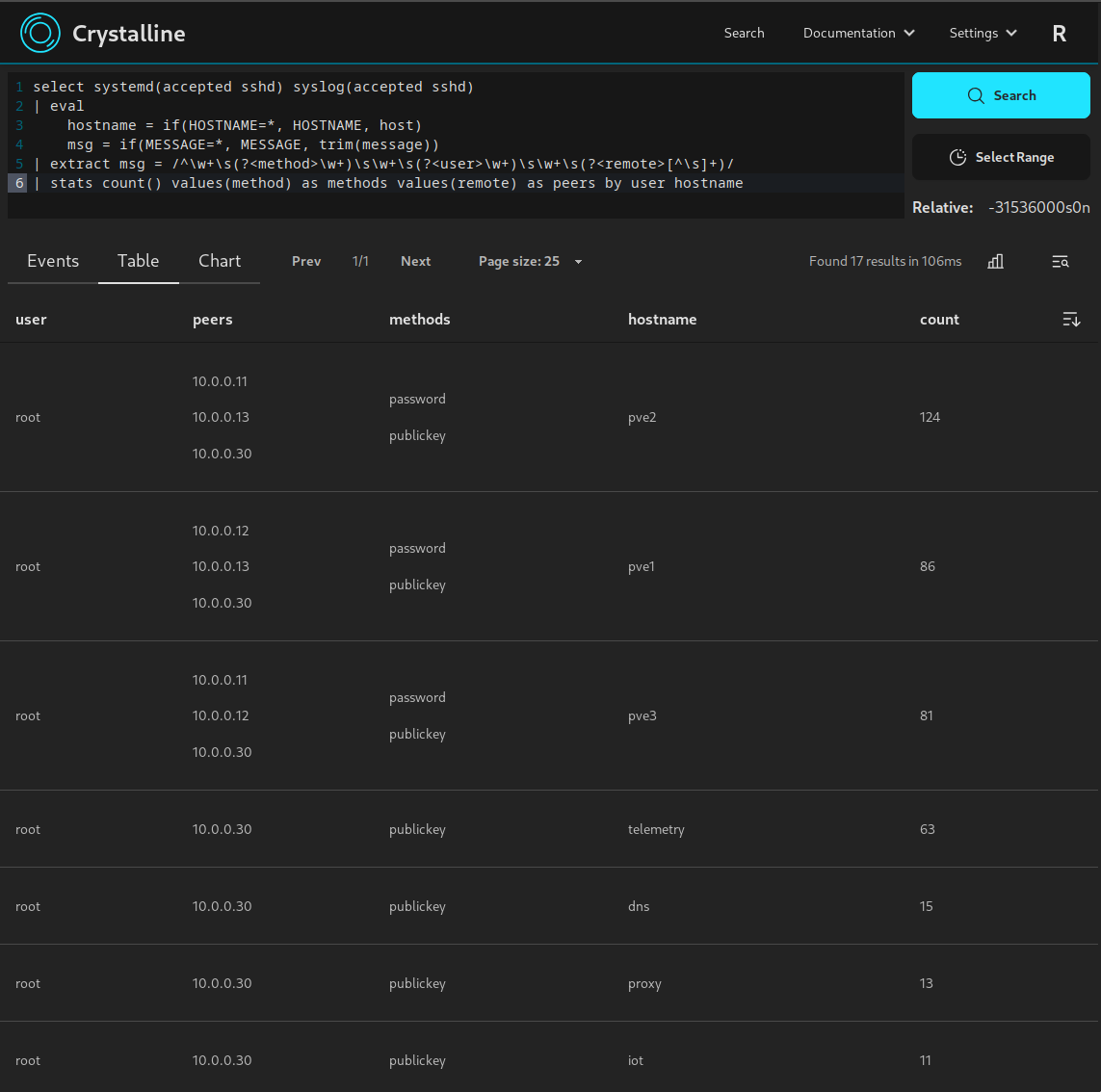Hi everyone, I’ve been building my own log search server because I wasn’t satisfied with any of the alternatives out there and wanted a project to learn rust with. It still needs a ton of work but wanted to share what I’ve built so far.
The repo is up here: https://codeberg.org/Kryesh/crystalline
and i’ve started putting together some documentation here: https://kryesh.codeberg.page/crystalline/
There’s a lot of features I plan to add to it but I’m curious to hear what people think and if there’s anything you’d like to see out of a project like this.
Some examples from my lab environment:
events view searching for SSH logins from systemd journals and syslog events:

counting raw event size for all indices:

performance is looking pretty decent so far, and it can be configured to not be too much of a resource hog depending on use case, some numbers from my test install:
- raw events ingested: ~52 million
- raw event size: ~40GB
- on disk size: ~5.8GB
Ram usage:
- not running searches ingesting 600MB-1GB per day it uses about 500MB of ram
- running the ssh search examples above brings it to about 600MB of ram while the search is running
- running last example search getting the size of all events (requires decompressing the entire event store) peaked at about 3.5GB of ram usage



Applications like metrics because they’re good for doing statistics so you can figure out things like “is this endpoint slow” or “how much traffic is there”
Security teams like logs because they answer questions like “who logged in to this host between these times?” Or “when did we receive a weird looking http request”, basically any time you want to find specific details about a single event logs are typically better; and threat hunting does a lot of analysis on specific one time events.
Logs are also helpful when troubleshooting, metrics can tell you there’s a problem but in my experience you’ll often need logs to actually find out what the problem is so you can fix it.
Yeah that makes sense now. Thanks for the explanation.